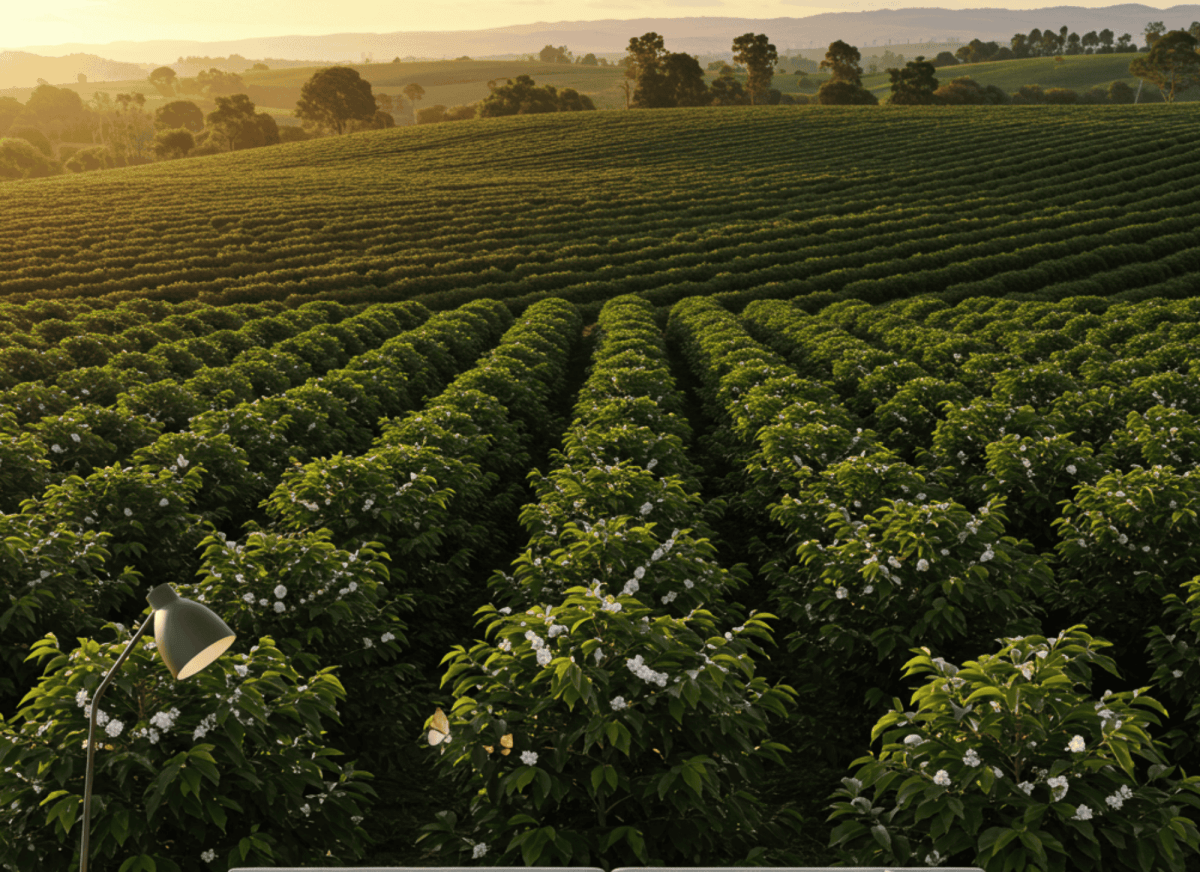How choosing ethically sourced coffee reflects our faith values and strengthens global communities.
When you brew your morning cup of coffee, you're participating in a global story that connects your kitchen to farming families thousands of miles away. For Christians who seek to live out their faith through everyday choices, understanding the difference between ethically sourced coffee in Christian communities and regular coffee isn't just about taste—it's about stewardship, justice, and loving our neighbors as ourselves.
As believers, we're called to consider how our purchasing decisions impact the vulnerable and marginalized. The coffee industry, unfortunately, has a history of exploiting farmers in developing nations. But there's hope: ethical sourcing practices are transforming how specialty coffee reaches our cups, creating opportunities for Christian communities to make choices that align with biblical values of justice and compassion.
What Makes Ethically Sourced Coffee Different from Regular Coffee?
The fundamental difference between ethically sourced coffee and regular coffee lies in the relationship between farmers and buyers. Regular coffee often passes through multiple middlemen who prioritize profit margins over farmer welfare. This conventional supply chain frequently leaves coffee growers—many of whom are families in Latin America, Africa, and Asia—struggling to earn a living wage despite producing one of the world's most beloved beverages.
Ethically sourced coffee establishes relationships that guarantee farmers receive fair compensation for their harvest, regardless of market fluctuations. This approach includes premiums for community development projects like schools, healthcare facilities, and sustainable farming education. When Christian communities choose ethically sourced coffee, they're supporting economic justice that reflects biblical principles of caring for the oppressed and ensuring workers receive fair wages.
Direct trade partnerships work directly with farming cooperatives to establish long-term relationships. This approach often results in higher payments to farmers, along with shared knowledge about sustainable farming practices and quality improvement techniques.
Genuine Origins programs, like those developed by Volcafe, represent another approach to ethical sourcing that combines transparency with fair compensation. These programs focus on traceable coffee from specific farms and regions, ensuring farmers receive equitable payment while maintaining the unique characteristics that make each origin special.
Fair trade certification provides structured standards and guarantees for farmer compensation and community development, offering another pathway to ethical sourcing with verified accountability.
Whether through direct trade partnerships, genuine origins programs, or certified ethical standards, these sourcing approaches create transparency that allows Christian consumers to trace their coffee's journey from seed to cup. Each method ensures that purchasing decisions support farming families—all of God's children—who are working to build better futures for their communities.
The Christian Call to Ethical Coffee Consumption
Scripture consistently calls believers to consider how their choices affect others. Proverbs 31:8-9 urges us to "speak up for those who cannot speak for themselves" and "defend the rights of the poor and needy." When Christian communities choose ethically sourced coffee, they're putting these verses into practice through their purchasing power.
The coffee industry employs over 125 million people worldwide, with the majority being small-scale farmers. Many of these families live in poverty despite growing a crop that generates billions in revenue. Regular coffee purchasing often perpetuates this injustice through price volatility and exploitation.
Fair trade certification ensures that farmers receive prices that cover sustainable production costs and provide a living wage. The fair trade premium—an additional amount paid on top of the fair trade minimum price—funds community development projects chosen by farmers themselves. These might include building schools where children can receive education, establishing healthcare clinics, or implementing clean water systems.
For Christian communities, supporting ethically sourced coffee becomes a form of global discipleship. It's a way to love our neighbors—even those we'll never meet—by ensuring our daily coffee ritual contributes to human flourishing rather than perpetuating systems of oppression.
Many churches have embraced ethically sourced coffee for their fellowship times, recognizing that sharing responsibly sourced refreshments aligns with their mission to show Christ's love to the world.
How Ethical Sourcing Transforms Coffee-Growing Communities
The impact of ethically sourced coffee in Christian communities extends far beyond individual transactions. When churches, Christian families, and faith-based organizations consistently choose responsibly sourced coffee, they create market demand that transforms entire regions.
In coffee-growing areas of Guatemala, Ethiopia, and Colombia, ethical sourcing premiums have funded hundreds of community projects. Schools built with these funds educate the next generation of farmers in both traditional knowledge and modern sustainable techniques. Healthcare clinics provide essential services to remote communities that previously had limited access to medical care.
Sustainable farming practices encouraged by ethical sourcing programs protect the environment while improving coffee quality. Farmers learn organic cultivation methods that preserve soil health, protect watersheds, and maintain biodiversity. This stewardship approach resonates with Christian values of caring for God's creation.
The stability that ethical sourcing provides allows farming families to plan for the future. Children can attend school instead of working in fields. Farmers can invest in improving their coffee processing methods, which increases the quality of their single-origin beans and commands higher prices.
Christian coffee roasters often develop relationships with farming communities through multiple ethical sourcing approaches—direct trade, genuine origins programs, and certified standards. These partnerships involve visiting farming communities regularly to provide technical support and spiritual encouragement, creating genuine friendships that span continents and cultures and embody the global nature of Christ's church.
Building Community Through Ethical Coffee Choices
Ethically sourced coffee serves as more than just a beverage in Christian communities—it becomes a tool for education, fellowship, and mission. Churches that switch to responsibly sourced coffee often use the transition as an opportunity to teach about global justice, Christian stewardship, and the interconnectedness of our world.
Youth groups can learn about coffee farming while understanding how their faith calls them to consider the global impact of their choices. Small groups gathering over artisanal coffee can discuss how supporting ethical sourcing reflects biblical values of justice and compassion.
The higher quality often found in specialty coffee from ethical sources enhances these community experiences. Ethical sourcing relationships typically result in better-tasting coffee because farmers can invest in improved processing methods and harvest only the ripest cherries. This quality improvement means Christian communities don't have to choose between their values and their taste preferences.
Many churches have found that serving ethically sourced coffee during fellowship times sparks conversations about global mission, social justice, and practical discipleship. It becomes a tangible way to connect Sunday morning worship with Monday morning choices.
The premium price for ethical coffee represents a small sacrifice that yields significant impact. For Christian communities committed to stewardship, this modest investment in justice and quality reflects wise resource allocation that honors both God and neighbor.
Making the Switch: Practical Steps for Christian Communities
Transitioning to ethically sourced coffee in Christian communities doesn't require dramatic changes, just intentional choices. Start by identifying reliable sources of responsibly sourced coffee from roasters who share your values and maintain transparent relationships with farmers.
Look for various indicators of ethical sourcing—certified programs, direct trade partnerships, genuine origins transparency, or other accountability measures that indicate adherence to social and environmental standards. Seek out coffee roasters who practice multiple forms of ethical sourcing and can tell you specific stories about the farming families and communities they support.
Churches can begin by switching their fellowship coffee to ethically sourced options and sharing the story behind their choice with the congregation. Christian families can make responsible sourcing a consideration in their grocery shopping, recognizing that every purchase is a vote for the kind of world they want to support.
Consider the long-term impact: a church that serves 100 cups of coffee per week could support ethical farming practices with over 5,000 cups annually. That collective purchasing power creates meaningful change in coffee-growing communities while providing Christian community members with delicious, thoughtfully sourced coffee.
Ready to Make a Difference with Your Daily Brew?
At His Word Coffee, we're committed to ethical sourcing through direct trade partnerships, genuine origins programs, and certified standards that build relationships with farming families around the world. Our specialty coffee is roasted fresh in Vancouver, Washington, and every bag supports sustainable farming practices, fair wages, and community development for coffee growers around the world.
Explore Our Ethically Sourced Coffee Collection →
Join Christian communities across the nation in choosing coffee that reflects our call to love our neighbors as ourselves.
Frequently Asked Questions About Ethically Sourced Coffee
What is ethically sourced coffee?
Ethically sourced coffee refers to coffee beans purchased through transparent supply chains that ensure farmers receive fair compensation, support sustainable farming practices, and promote community development. This includes direct trade partnerships, genuine origins programs, and certified standards that prioritize farmer welfare over profit margins.
How is ethically sourced coffee different from regular coffee?
Regular coffee often passes through multiple middlemen who prioritize profit over farmer welfare, leaving growers with minimal compensation. Ethically sourced coffee establishes direct relationships or certified programs that guarantee fair wages, community development premiums, and sustainable farming support for coffee-growing families.
Why should Christian communities choose ethically sourced coffee?
Choosing ethically sourced coffee aligns with biblical principles of justice, stewardship, and loving our neighbors. It ensures that daily coffee consumption supports farming families worldwide, promotes community development projects like schools and healthcare, and reflects Christian values of caring for the vulnerable and marginalized.
What are the different types of ethical coffee sourcing?
The main types include direct trade partnerships (direct relationships with farming cooperatives), genuine origins programs (traceable coffee from specific farms with fair compensation), and certified standards (programs that verify ethical practices and fair wages). Each method ensures transparency and farmer support through different approaches.
Does ethically sourced coffee taste better than regular coffee?
Yes, ethically sourced coffee often tastes better because farmers can invest in improved processing methods, harvest only the ripest cherries, and focus on quality over quantity. The direct relationships and fair compensation allow farmers to prioritize coffee quality, resulting in cleaner, more vibrant flavors.
How does ethical coffee sourcing help farming communities?
Ethical sourcing provides stable income for farming families, funds community development projects like schools and healthcare clinics, supports sustainable farming education, and allows farmers to invest in quality improvements. This creates positive cycles that benefit entire coffee-growing regions over generations.
Is ethically sourced coffee more expensive?
Ethically sourced coffee typically costs more than conventional coffee because it ensures fair wages for farmers and supports community development. However, this modest price premium represents a small investment that creates significant positive impact for farming families and communities worldwide.
What should churches look for when choosing ethical coffee?
Churches should seek coffee roasters who practice transparent sourcing, can tell specific stories about their farming relationships, and demonstrate multiple approaches to ethical sourcing. Look for direct trade partnerships, genuine origins programs, or certified standards that verify fair compensation and community support.
How does His Word Coffee practice ethical sourcing?
His Word Coffee practices ethical sourcing through partnerships with direct trade importers, purchasing fair-trade green coffee, and certified standards. We build relationships with farming families worldwide, ensure fair compensation, support sustainable farming practices, and contribute to community development in coffee-growing regions.
Can individual families make a difference by choosing ethical coffee?
Absolutely. Every purchase of ethically sourced coffee supports fair wages for farming families and community development projects. When Christian families consistently choose ethical coffee, they join a global movement that transforms entire coffee-growing regions through collective purchasing power and values-driven consumption.
Published by His Word Coffee | Vancouver, Washington




Leave a comment
This site is protected by hCaptcha and the hCaptcha Privacy Policy and Terms of Service apply.